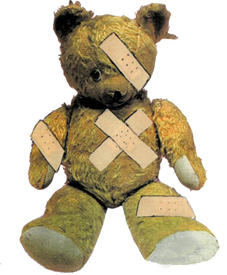 Schools sick from the social crisis
Schools sick from the social crisis
He did not die directly from the blows inflicted on him, but from a serious heart defect which made the stress endured by a banal squabble between college students fatal. The death Thursday evening in Meaux, in the Paris suburbs, of young Karl, who was 12 years old and had been molested by two classmates, nonetheless aroused strong emotion. This drama reignited the controversy over school violence all the more as it occurred a few days after the revelation of the ordeal suffered by a schoolgirl from Marseille who was raped by her classmates. And almost a year to the day after a plastic arts teacher stabbed in the middle of class, still in the Paris suburbs, moved France by accusing the Minister of Education and his administration of not having heard her cries for help . (…) From one drama of school violence to another, moreover, the same portrait is redrawn of an Education administration deaf to the warnings coming from the field: the teachers’ unions and parents’ associations of Meaux had warned her in recent weeks of climate deterioration. According to official figures, each year in France there are around 82,000 serious incidents of violence in schools. Vocational high schools are the most violent, followed by middle and high schools. (Source: La libre 12/23/2006)
 In terms of social capital, this deeply sad event reveals the seriousness of the situation. A society that reaches this level has no, almost no, social capital. Aggression, psychological instability, ethnic hatred, organic incapacity to live in harmony have developed on the basis of mass immigration and economic crisis. France has never been a friendly country, and due to these new factors, today it undoubtedly holds a sad record in Europe from this point of view…
In terms of social capital, this deeply sad event reveals the seriousness of the situation. A society that reaches this level has no, almost no, social capital. Aggression, psychological instability, ethnic hatred, organic incapacity to live in harmony have developed on the basis of mass immigration and economic crisis. France has never been a friendly country, and due to these new factors, today it undoubtedly holds a sad record in Europe from this point of view…
Hence the question: who has had a constant policy in recent decades of allowing material, intellectual and moral poverty to take hold? To reconstitute a new ethnicized proletariat, incapable of understanding anything from this society other than a moral laxity from which it can benefit? To maintain the neglect and dilapidation of a public service that has never been reformed?
This college was the scene of violence, teachers had sounded the alarm, and nothing was done. A college classified as “ambition to succeed”: an antiphrase which seeks to hide the disaster. A recent INSEE study concludes that the effort for ZEPs (Priority Education Zones) is far from being disproportionate. The ZEPs have received only a few positions and overtime hours, the proof being that the average class size has only decreased very slowly; today it is barely lower than those of non-ZEP classes: 25 students instead of 27. On the question of whether ZEPs have an effect on academic success, the authors are even more desperate since, from the analysis of panels of middle school students (1980 and 1989) followed throughout their schooling, they estimate that the implementation of ZEPs had no significant effect on student success, measured by obtaining a diploma, access to fourth, second and obtaining the baccalaureate.










